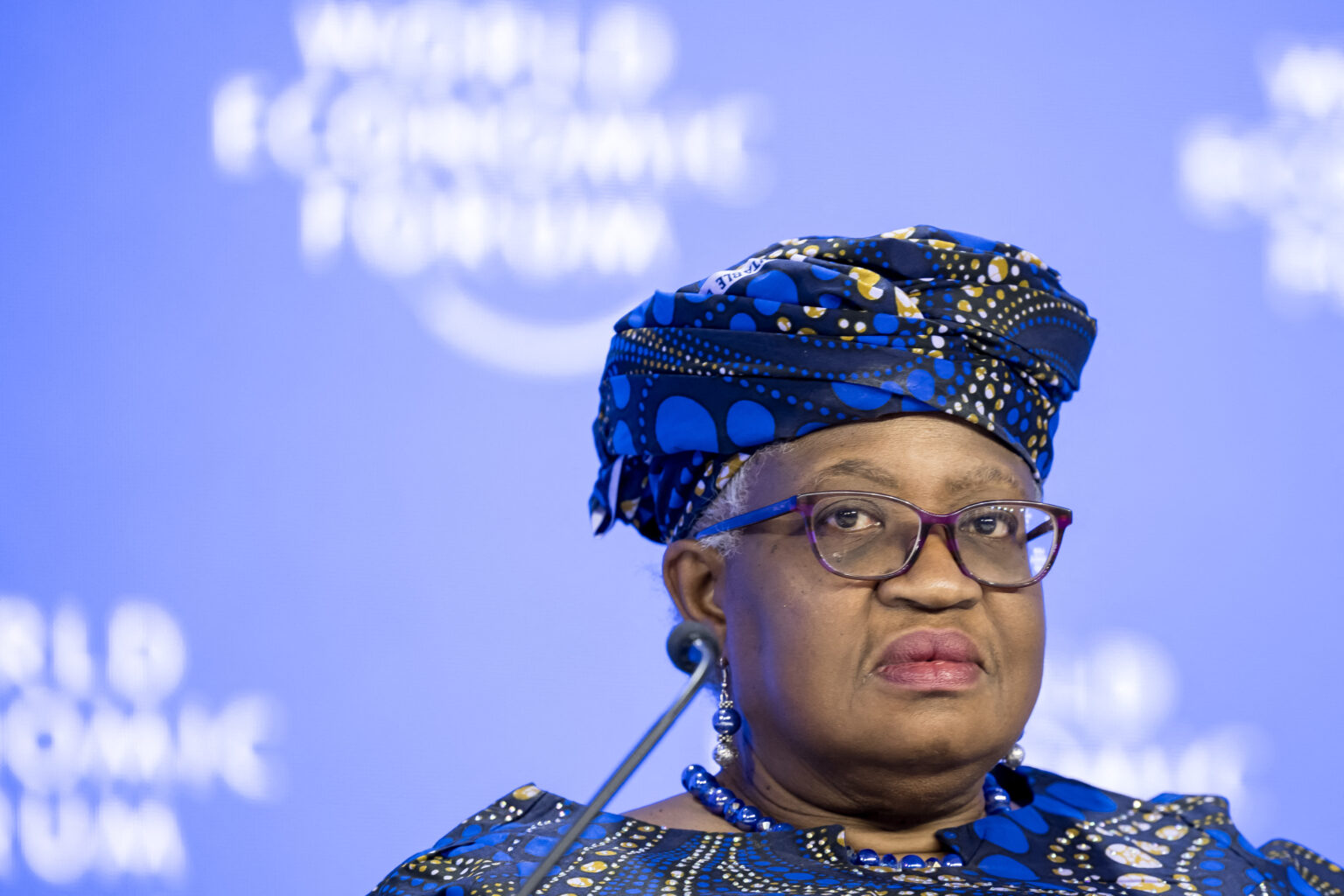The World Trade Organization (WTO) Director-General, Ngozi Okonjo-Iweala, has expressed serious apprehension regarding the potential for heightened trade disputes between the United States and China.
She has advised the world’s two largest economies to ease their tensions, highlighting the severe repercussions for the international financial system.
In a recent interview with Reuters, Okonjo-Iweala cautioned that if the conflicts persist, the long-term global economic output could shrink by as much as 7%.
READ ALSO: Okonjo-Iweala backs Tinubu’s economic reforms, calls for stronger social safety nets
Her remarks follow a significant revision by the WTO last week, where it dramatically cut its 2026 forecast for the growth of global merchandise trade volume to a mere 0.5%—a steep drop from the 1.8% projection made in August.
This change was attributed to the expected lingering effects of President Donald Trump’s tariffs.
Conversely, the organisation slightly increased its 2025 global goods trade growth forecast to 2.4%.
This relatively calm period was disrupted when China implemented new export controls on rare earth metals—critical for the technology sector—shortly followed by the U.S. response of imposing new 100% tariffs on Chinese imports set to take effect next month.
Okonjo-Iweala stated that the escalating US-China tensions are a significant worry, acknowledging that both nations had previously stepped back from a tariff confrontation earlier this year, avoiding a worse outcome.
She holds out hope that a similar de-escalation can occur now, emphasizing that any “decoupling” between the US and China would have ramifications not only for them but for the entire globe.
She stressed that both governments understand the importance of stable relations given the wider global implications.
A split of the world into two separate trading blocs due to decoupling would lead to substantial long-term global Gross Domestic Product (GDP) losses, up to 7%, with welfare losses for developing countries potentially hitting double digits.
Speaking to officials from the Group of 20 (G20) major economies, the Director-General asserted that global financial stability is impossible without stable global trade.
She warned that current pressures on the system remain high and could intensify, noting that the full impact of recent tariffs hasn’t been felt, and trade redirection is spurring protectionist reactions elsewhere.
She specifically cited the escalating tensions between the U.S. and China as a major ongoing risk.
Despite the volatility, Okonjo-Iweala pointed out the resilience of the multilateral, rules-based trading system, noting that most WTO members have not joined the tariff conflict, and 72% of global trade continues to adhere to WTO regulations, even with a proliferation of bilateral U.S. trade agreements.
Acknowledging that the system is currently enduring its most severe policy shock in eight decades, the WTO head argued that this crisis of multilateralism should be a catalyst for much-needed reforms within the organization.
She advocated for making the WTO more flexible and efficient to seize emerging opportunities in areas like digital, services, and green trade.
The Director-General firmly believes that global issues require global cooperation, which makes multilateralism indispensable.
However, she underscored that for multilateral organizations to maintain relevance, they must reform, a process the WTO is ready to undertake.
READ ALSO: Okonjo-Iweala, Mo-Abudu shine in Forbes’ 2024 powerful women list [FULL LIST]
She also confirmed a productive meeting with the new Deputy U.S. Trade Representative, Joseph Barloon, who was recently confirmed as the U.S. ambassador to the WTO.
Okonjo-Iweala expressed gratitude for the U.S. decision to remove the WTO from its list of planned funding cuts for international bodies, and noted that efforts are underway to resolve outstanding U.S. financial obligations to the trade organisation.



